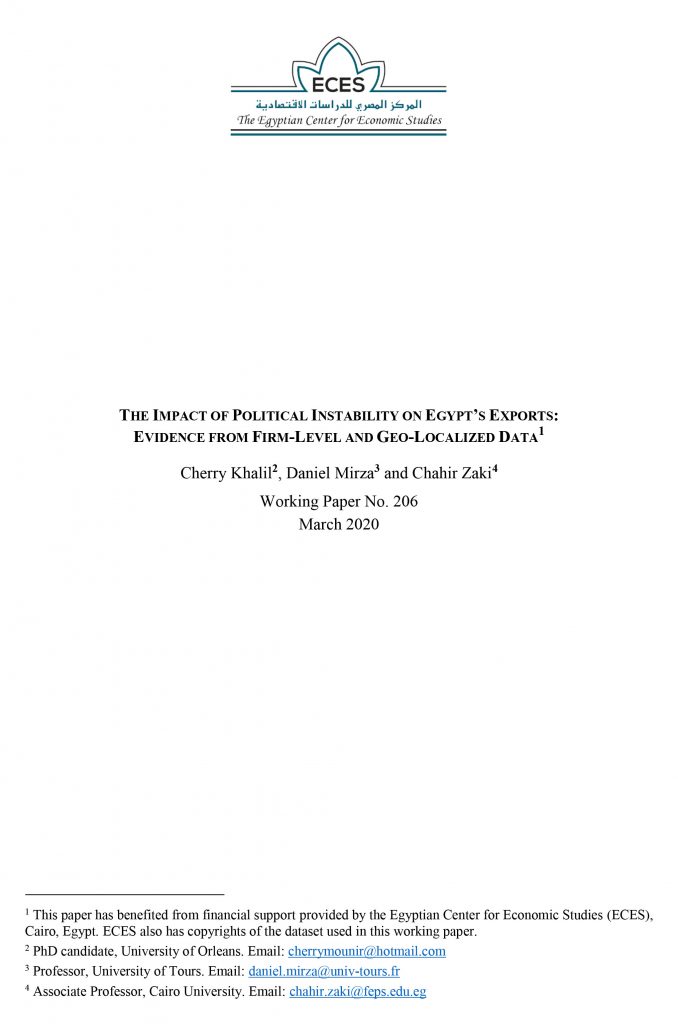Egyptian foreign trade figures have deteriorated abruptly after the 2008 global economic crisis, and then continued to go down since the Arab Spring and terrorism events after 2011. Such a deterioration affected firms’ performance (in terms of the quantity and the value of exports as well as the number of exporters). Thus, using firm-level exports data at monthly levels merged with data on Arab Spring and terror events from the Armed Conflict Location & Event Data Project (ACLED) dataset (2005-2016), this paper examines the effect of political instability (measured by riots and terrorist events) on firm level performance to export. Our main findings show that the individual exports are negatively affected by different events. This effect is more pronounced for small firms followed by medium ones for both the quantities and the values of exports, though two to three times stronger for quantities. Egyptian exporters tend also to reallocate their exports from destination where they face a fiercer competition during period of political instability. Moreover, unit values experience an increase, notably for small and medium exporters, a result consistent with their probable capacity constraints during the turmoil.

The Impact of Political Instability on Egypt’s Exports: Evidence from Firm-Level and Geo-Localized Data
09-03-2020
Author(s): Cherry Khalil, PhD, candidate, University of Orleans; Daniel Mirza, Professor, University of Tours; Chahir Zaki, Associate Professor, Cairo University
Publication Number: ECES-WP206-E
